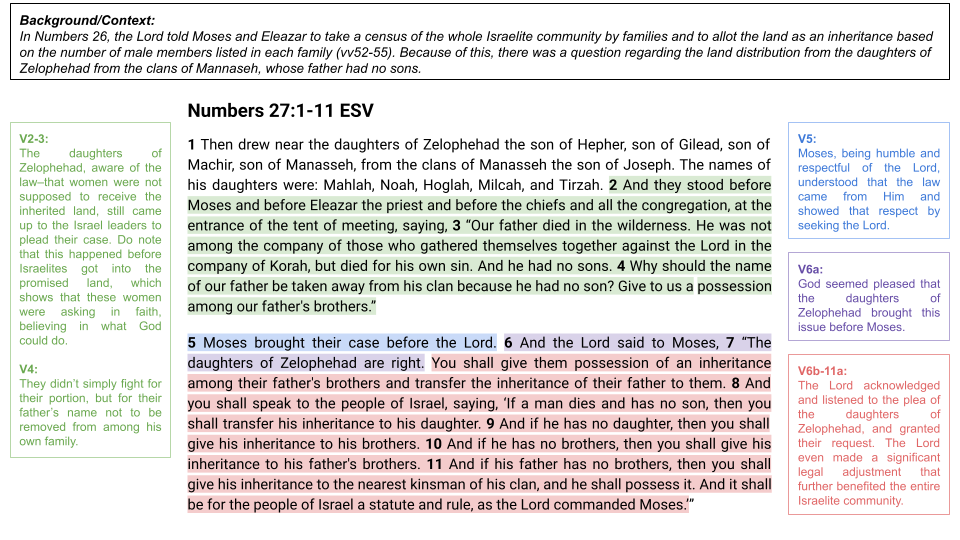
Refer to slides for Observations of the passage and use it to read alongside below Interpretation/Application.
At a Chinese dining table, it’s quite common for the last piece of food on a serving plate to remain untouched until nearly the end of the meal, when people begin to offer it to one another. You may have been in this situation before, whether you grew up in the tradition or simply exchanged cultures through a meal with a friend. This practice of restraining personal desires and prioritizing the needs of others is believed to promote respect and foster harmony.
Growing up, this cultural emphasis on self-restraint often seeped into my spiritual life, creating an internal tension. I found myself feeling guilty for wanting something for myself. Approaching God felt akin to reaching for that last piece of food at the table: an act that seemed selfish and disruptive to the harmony I was taught to uphold in my relationships. So, I ended up repressing my desires, needs, and emotions, convinced that denying myself was the right way to honor my relationships with God and others.
However, Numbers 27:1-11 presents a refreshing counter-narrative. In this passage, the daughters of Zelophehad boldly approach Moses to seek their rightful inheritance. They know the law at the time only allowed sons to inherit land, yet they choose to speak out. Their courage to advocate for themselves reflects a deep faith that God would listen and understand their ask. When they present their case, God not only grants their request but also establishes a new precedent for inheritance rights. This moment illustrates how God genuinely cares for those who earnestly seek Him. He doesn’t see our needs and desires as trivial; they matter deeply to Him.
The simple Gospel, as expressed in John 3:16, reminds us of how much God loves us—that He gave His one and only Son so our relationship with Him can be restored. Knowing that the God of the universe cares for us deeply and desires an intimate relationship with us is a powerful reminder that we can be completely honest with Him, even about our desires and struggles. This boldness is echoed in Hebrews 4:16, which encourages us to “draw near to the throne of grace” with confidence.
So, what questions or requests do you have for God today? Do you have dreams or desires that stir your heart? Perhaps there are worries and fears that weigh you down. Is there something that breaks your heart or makes you angry? Remember, you can share everything—the good, the bad, and the ugly—with God. He is not only able to handle it but also delights in hearing from you.
Approaching God isn’t just about making requests; it’s about cultivating a deep and honest relationship with Him. It’s about stepping forward in faith and vulnerability, where we may learn a great deal about both God and ourselves. When we open up, we may discover new facets of God’s character—His compassion, His understanding, and His unwavering love.
In the end, learning to approach God with confidence can transform your spiritual journey. It frees us from the guilt of wanting and opens the door to a more authentic relationship. So go ahead, reach out to Him. Your desires, needs, and emotions are not distractions; they are invitations to a deeper connection with the One who knows you best.

